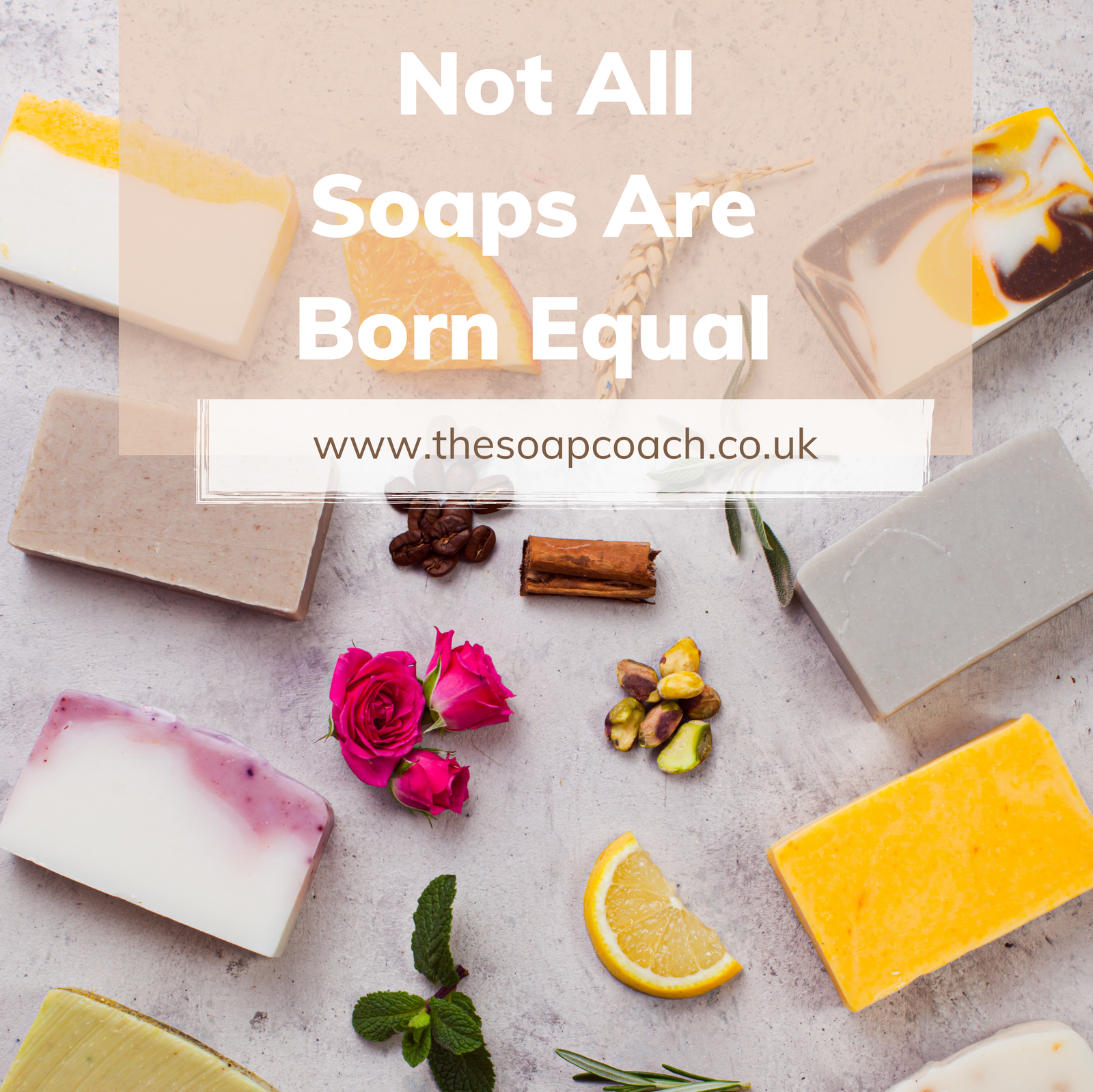Not All Soaps Are Born Equal

Is all hand made soap the same?
So what do I mean by that title? A bar of soap is just that right? Soap?
Well, that is a bit like comparing a rock cake with a sponge cake. They are both just cakes right?
But as we all know, rock cakes are quite heavy and have fruit in whereas a sponge cake is light and, should be, moist yet fluffy! (Not mine sadly)
Soap, similarly, can very wildly from one bar to the next all depending on the recipe.
As an example lets take 100% Coconut Oil Soap - Coconut Oil is known to produce a very hard bar of soap, big bubbles and is very cleansing - that means on it's own, and without a significant amount of excess coconut oil (superfatting) it would be quite drying to the skin simply because it is so cleansing - however at a 0% superfat it makes a great dish or laundry soap.

Conversely, olive oil creates a low lather and makes a much softer bar of soap but is low in it's cleansing abilities - this means it is a very gentle soap and ideal for babies or very sensitive skins.
Does it matter what % of each oil I use in my soap?
There are a multitude of other butters and oils we can use in our soap making and they all bring different attributes to the party. Some can only be used in very low % as they can make soap feel slimy - caster oil for example is moisturising and cleansing whilst giving big bubbles but can give a sticky bar of soap so would generally be used at lower levels.
Cocoa butter can help make a harder bar of soap but too much can make it brittle and crack.
Shea butter adds to the hardness of the bar and the stability of the lather - and so it goes on so yes it does matter what % of oils you use depending upon the individual qualities of each one.
Coconut Oil and Olive Oil are about the only oils you can use exclusively on their own to make soap.
What about a bar of mass produced soap from the supermarket?
Well that will most likely either not be real soap (think Dove for example - Dove is a syndet bar and chemically formulated) or it will have the glycerin extracted. Glycerin is naturally occurring in handmade soap but is a valuable commodity which can be used in a more profitable manner in other products so it is extracted from the mass produced soap.
Why does it matter if the glycerin is removed?
Well glycerin is a humectant, this means it attracts moisture and moisture on the skin is a good thing. It is one of the benefits of natural, handmade soap and helps make our handmade soap a pleasure to use.
So going back to the title of this blog - not all soaps are not born equal.
If you would like to learn how to make soap whether now or in the future, or find out more out what is involved in soap making or and be the first to know when new soap making workshops dates in Dorset are added, sign up for my newsletter here and also receive a free download of my 10 Compelling Reasons to Make Your Own Soap too. Or find out more about how you can learn right now here.
Leave a comment